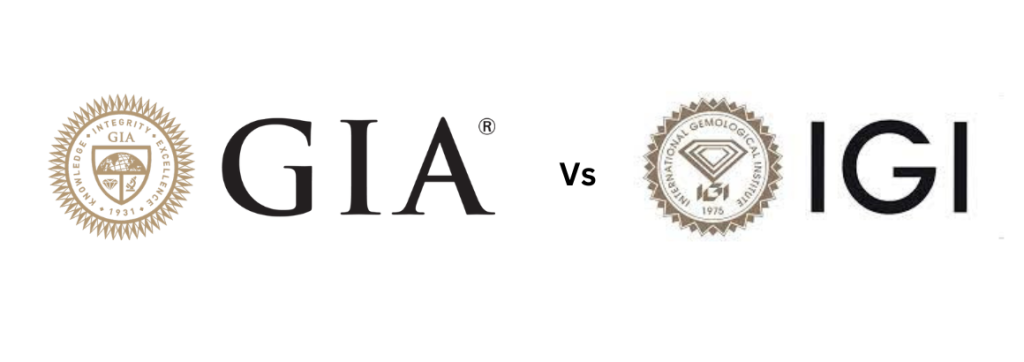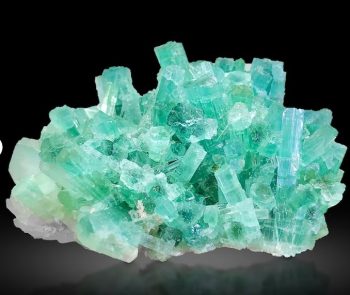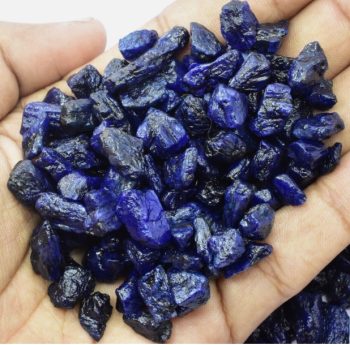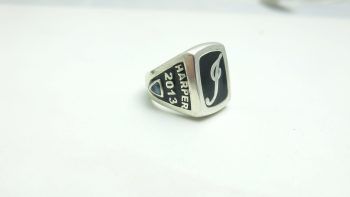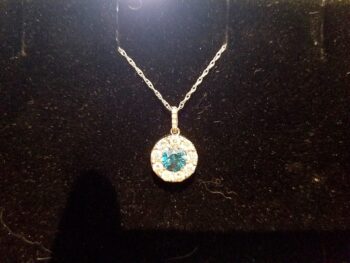There are a lot of diamond certification labs out there. And luckily, there are far fewer than 10 years ago. Until then, there was a bunch of labs that systematically over graded stones. It was a big scandal when the story broke. As a result, a lot of these labs went under. EGL Israel, EGL International, and EGL USA all disappeared. So did lot of others than were not big players. But you could find stones they certified all over the internet, especially on places like Ebay. In this post, we will discuss the two most common remaining diamond labs: IGI Vs GIA. We will also discuss what to look for and avoid in a diamond certificate in general.
What Are Diamond Certification Labs – IGI Vs GIA
Diamond certification labs are independent organizations that evaluate and grade diamonds based on their quality and characteristics. These labs use standardized criteria to assess factors such as cut, color, clarity, and carat weight to determine the overall quality of a diamond. The most well-known certification labs include the Gemological Institute of America (GIA), the American Gem Society (AGS), and the International Gemological Institute (IGI).
Consumers can rely on diamond certification labs to provide an unbiased and professional assessment of a diamond’s quality. The certification process involves thorough examination by experienced gemologists using specialized equipment to accurately evaluate the diamond’s characteristics. By obtaining a certification from a reputable lab, buyers can have confidence in the quality and authenticity of the diamond they are purchasing.
Diamond certification labs play a crucial role in the diamond industry by providing an objective evaluation of a diamond’s quality. Whether buying or selling a diamond, having a certification from a reputable lab such as GIA or AGS can offer peace of mind and assurance of the diamond’s value and quality. It is recommended to always look for diamonds with certifications from recognized labs to ensure transparency and authenticity in the purchase.
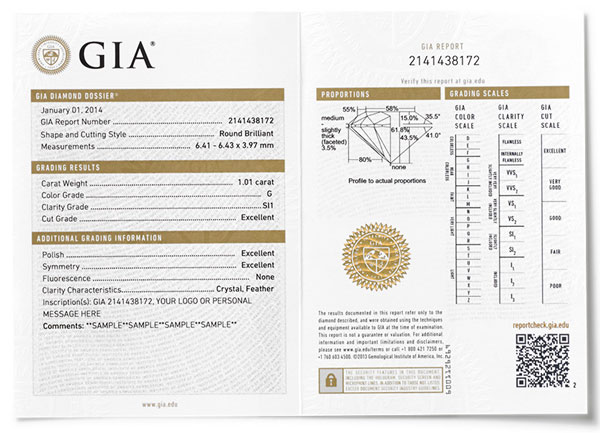
What Happened in 2014?
In 2014, the EGL diamond certification scandal shook the diamond industry. EGL, the European Gemological Laboratory, was accused of issuing inflated grades on diamond certificates, leading consumers to overpay for lower quality stones. This scandal raised concerns about the credibility and consistency of diamond grading standards within the industry. Many consumers were left feeling deceived and uncertain about the true value of their diamonds.
The scandal prompted a significant backlash from both consumers and industry experts. It highlighted the importance of transparency and accuracy in diamond certification. As a result, many consumers became more cautious and started to seek out reputable laboratories with stringent grading standards. The EGL scandal served as a wake-up call for the diamond industry to prioritize integrity and honesty in diamond grading practices.
In the aftermath of the EGL diamond certification scandal, the industry saw a shift towards more reliable and consistent grading practices. Consumers became more informed and vigilant when purchasing diamonds, emphasizing the need for trustworthy certification. This event underscored the significance of reputable grading laboratories and the importance of ensuring that consumers receive accurate information about the quality and value of their diamonds.
What Is IGI?
IGI, which stands for International Gemological Institute, is a renowned organization dedicated to grading and certifying gemstones and fine jewelry. Established in 1975, IGI has become a trusted name in the industry, providing accurate and reliable assessments of gemstone quality. With locations worldwide, IGI offers services such as diamond grading, colored stone identification, and jewelry certification to both professionals and consumers.
The process of obtaining an IGI certification involves a thorough examination of the gemstone or jewelry piece by experienced gemologists. Each item is evaluated based on the “4 Cs” – cut, color, clarity, and carat weight for diamonds, and additional criteria for colored gemstones. The resulting report provides detailed information about the item’s characteristics, allowing buyers to make informed decisions when purchasing gemstones or jewelry. IGI certifications are recognized globally and provide assurance of quality and authenticity.
Whether you are a jeweler looking to authenticate your inventory or a consumer seeking a trustworthy evaluation of a gemstone, IGI offers a reliable solution. By choosing IGI certification, you can have peace of mind knowing that your gemstone or jewelry has been assessed by experts using industry-standard grading techniques. With a commitment to excellence and accuracy, IGI continues to uphold its reputation as a leading gemological institute in the world.
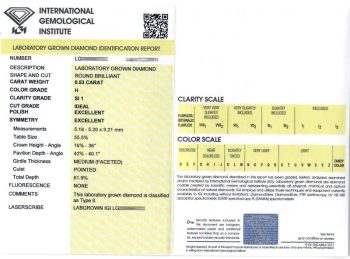
What Is IGI Certification
IGI Certification is a widely recognized gemological certification that verifies the quality and authenticity of diamonds, gemstones, and jewelry. The International Gemological Institute (IGI) is a renowned organization that conducts thorough examinations and assessments to provide consumers with confidence in their purchases. With IGI Certification, you can be assured of the quality, authenticity, and value of your precious stones and jewelry.
When you purchase a diamond or gemstone with an IGI Certification, you receive detailed information about the stone’s characteristics, including its cut, color, clarity, and carat weight. This certification serves as a guarantee of the stone’s quality and authenticity, giving you peace of mind knowing that you are investing in a genuine and valuable piece. Whether you are buying an engagement ring, a necklace, or any other piece of jewelry, IGI Certification ensures that you are getting a high-quality product.
In the world of gemstones and jewelry, IGI Certification is a mark of trust and quality. By choosing certified stones and jewelry, you are making a smart and informed decision that will bring you joy and satisfaction for years to come. Look for IGI Certification when making your next purchase. This will help to ensure that you are getting the best value for your money.
What Is GIA
The Gemological Institute of America, commonly known as GIA, is a non-profit organization considered the world’s foremost authority in gemology. Established in 1931, GIA is dedicated to ensuring the public trust in gems and jewelry by providing education, research, and laboratory services. Their mission is to protect consumers by setting and upholding the highest standards of integrity, academics, science, and professionalism in the gem and jewelry industry.
GIA offers a wide range of educational programs for individuals interested in gemology. These include courses on diamonds, colored stones, and pearls. These programs are designed to provide students with the knowledge and skills needed to identify, grade, and evaluate gemstones accurately. GIA’s research efforts focus on advancing the science of gemology. Their aim is to lead to innovations in gemstone identification and treatment detection.
In addition to education and research, GIA operates laboratories around the world that provide gem identification and grading services. These laboratories use state-of-the-art equipment and techniques to assess the quality and authenticity of gemstones. GIA-graded diamonds and gemstones are highly regarded in the industry for their accuracy and consistency, providing consumers with confidence in their purchases.
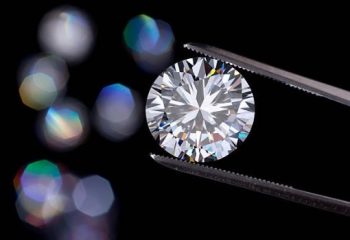
What Is GIA Certification
GIA certification is a mark of quality for gemstones. The Gemological Institute of America evaluates and grades diamonds and colored gemstones based on their quality and characteristics. This certification provides consumers with assurance regarding the authenticity and quality of the gemstones they are purchasing.
When a gemstone is GIA certified, it means that it has undergone thorough examination by gemologists who assess its cut, color, clarity, and carat weight. This detailed evaluation results in a comprehensive report that includes all the relevant information about the gemstone. This certification is highly regarded in the jewelry industry and is often considered a benchmark for quality assurance.
In conclusion, GIA certification is a valuable tool for consumers looking to purchase high-quality gemstones. By choosing GIA certified gemstones, buyers can have confidence in the authenticity and quality of their purchase. This certification serves as a reliable indicator of a gemstone’s characteristics. This serves to help buyers make informed decisions when investing in precious stones.
What’s The Difference Between IGI Vs GIA Diamond Certifications?
When considering a diamond purchase, it’s essential to understand the difference between IGI vs GIA certifications. The International Gemological Institute (IGI) and the Gemological Institute of America (GIA) are two well-known diamond grading laboratories. Both organizations provide detailed reports on a diamond’s characteristics, including the 4Cs – cut, color, clarity, and carat weight. However, there are some distinctions between the two certifications that buyers should be aware of.
IGI is recognized for its consistency in grading diamonds and is often preferred for colored gemstones. On the other hand, GIA is highly regarded for its strict grading standards, particularly for color and clarity. Both certifications are reputable and widely accepted in the industry. However, GIA is generally considered the benchmark for diamond grading due to its stringent evaluation criteria.
In conclusion, whether you choose an IGI vs GIA certified diamond ultimately depends on your preferences and budget. Both certifications offer valuable information about a diamond’s quality, helping you make an informed decision. It’s advisable to review the specific details of each certification and consult with a trusted jeweler to ensure you select a diamond that meets your criteria and expectations.
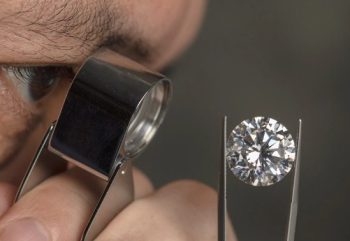
IGI Vs GIA: Which Is Better?
When it comes to choosing between IGI vs GIA for diamond grading, it’s essential to consider their differences. The International Gemological Institute (IGI) is known for its efficient service and lower cost. This makes it a popular choice among many consumers. On the other hand, the Gemological Institute of America (GIA) is highly respected for its strict grading standards and consistency in evaluations.
IGI is often preferred by those looking for a budget-friendly option without compromising too much on quality. They provide quick turnaround times, which people love. They are also generally more affordable compared to GIA. However, some critics argue that IGI may be more lenient in their grading, potentially leading to overestimation of a diamond’s quality.
GIA, on the other hand, is recognized worldwide for its rigorous grading methods and strict adherence to standards. While their services may come at a higher price point, many consider the GIA certificate to be the gold standard in the industry. Choosing between IGI and GIA ultimately depends on your priorities. Whether you value affordability and efficiency or stringent grading and reputation. But know that both are reputable institutions providing reliable diamond grading.
IGI Vs GIA – Labs To Avoid
Looking for a reliable diamond certification lab is important. Avoiding uncertified or lesser-known labs that may not provide accurate assessments is crucial for this. Opt for labs that are accredited by reputable organizations such as GIA, IGI or the American Gem Society (AGS) to ensure credibility and quality assurance.
Avoid labs that lack transparency in their grading processes or refuse to disclose their testing methods. It’s crucial to choose a certification lab that follows strict guidelines and industry standards to guarantee the accuracy of the diamond grading report. Transparency is key in ensuring that you receive an unbiased evaluation of your diamond.
Steer clear of certification labs that offer suspiciously quick or overly generous grading results. Reliable labs take the time to thoroughly examine each diamond and provide detailed reports based on the 4Cs (cut, color, clarity, and carat weight). By avoiding hasty or inflated certifications, you can trust that the grading report accurately reflects the quality of your diamond.
Some of the labs we do not recommend are anything from EGL with a caveat. EGL USA can sometimes be reliable. But those are older certificates that you rarely see anymore. GCAL, IGL, and AIG are just a few of the ones that we can think of. Anything on Ebay that isn’t GIA or IGI will probably be a joke.
IGI Vs GIA – A Word On Appraisals
Diamond jewelry appraisals are often not reliable for determining the true value of the piece. Appraisals can vary widely depending on the appraiser’s expertise and biases. Factors such as market trends, demand, and the specific buyer can greatly influence the value of a diamond piece. Therefore, it’s important to consider multiple appraisals and do thorough research before selling or buying diamond jewelry.
Additionally, some appraisers may provide inflated values to benefit the seller or the appraiser themselves. This can lead to unrealistic expectations for the seller or paying more than necessary for the buyer. Seeking appraisals from reputable, independent appraisers can help ensure a more accurate valuation of diamond jewelry. It’s crucial to be cautious and skeptical of appraisals that seem too good to be true.
Diamond jewelry appraisals can provide a general idea of the value of a piece. However, they should not be solely relied upon for determining the true value. It’s advisable to seek multiple appraisals from trustworthy professionals. It is also good to consider other factors such as market conditions and personal preferences when assessing the worth of diamond jewelry.
In other words, do not rely on an appraisal for much.
Final Thoughts On IGI Vs GIA
When considering IGI vs GIA for gemstone certification, it’s important to weigh the pros and cons of each. The International Gemological Institute (IGI) is known for its efficient service and cost-effective pricing. On the other hand, the Gemological Institute of America (GIA) is highly regarded for its stringent grading standards and global recognition. It ultimately comes down to your priorities and budget when choosing between the two.
Both IGI and GIA have their own strengths and weaknesses. Whether you opt for IGI or GIA, ensure that the certification aligns with your expectations and requirements. By understanding the differences between the two, you can make an informed choice that best suits your gemstone certification needs.
